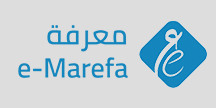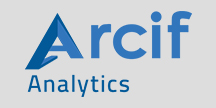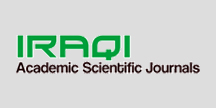Tax Accounting and Tax Evasion in Light of The Digital Orintation of Kurdistan Regional Government: A Theorotical Analyses Approach to exmine the possibility of employing the Block Chian Technology
DOI:
https://doi.org/10.21271/zjhs.25.2.5الكلمات المفتاحية:
Tax Accounting, Tax evasion, Block Chian, E-government.الملخص
Kurdistan Regional Government of Iraq work program stated that government is seeking to establish an e-government, and this digital trend will enhance the efficiency and effectiveness of the services provided by the government, especially in light of the exceptional circumstances that the region is going through from economic and financial crises. The complex tax accounting procedures based on paperwork and the phenomenon of tax evasion are one of the most important files that the Kurdistan Regional Government of Iraq (KRG) works to study and find solutions that reduce the complexity of the tax accounting process and also reduce the chances of tax evasion by the taxpayers. Block Chian technology is one of the pioneering digital technologies that researchers, international companies and governments are attracting attention to, as it is one of the most important electronic inventions that will contribute to the completion of tasks and businesses better in terms of transparency, protection, speed, accuracy and cost. Therefore, the study aimed to shed light on this technique in order to clarify its concepts and its working mechanism, and then to demonstrate the possibility of using it in addressing tax accounting and tax evasion. The study found the possibility of employing Block Chian technology in the tax department is possible, but this needs to work according to an integrated strategy in order to develop the infrastructure and develop the laws and legislation that regulate the work of the tax administration in the Kurdistan Region of Iraq.
المراجع
أولنسا، سفاين، يوبخت، يولين، يانسن، مارين، والعلوان، جعفر بن أحمد. (2019). تقنية سلسلة الكتلة "Block Chian" في المنظمات الحكومية: فوائد وآثار تقنية السجلات الموزعة لمشاركة المعلومات. الإدارة العامة: معهد الإدارة العامة، س59, ع4 ، 893 - 927.
حسن، محمود السند ؛ الغنام (2020) أثر استخدام سلاسل الكتل علي المراجعة الخارجية، مجلة البحوث المالية والتجارية، كلية التجارة، جامعة بورسعيد، 21 (1).
خليفة، إيهاب (2018). البلوك تشين: الثورة التكنولوجية القادمة في عامل املال والإدارة، أوراق أكاديمية، مركز المستقبل للأبحاث والدراسات المتقدمة.
خوشناو، صباح صابر محمد. (2015). تحليل فلسفة العلاقة بين سياسة التحاسب الضريبي في المديرية العامة للضرائب لإقليم كوردستان العراق وأسباب التهرب الضريبي. مجلة جامعة الأنبار للعلوم الاقتصادية والإدارية: جامعة الأنبار - كلية الإدارة والاقتصاد، مج7, ع14.
السامرائي، يسرى مهدي حسن، والعبيدي، زهرة خضير عباس. (2012). تحليل ظاهرة التهرب الضريبي ووسائل معالجته في النظام الضريبي العراقي. مجلة جامعة الأنبار للعلوم الاقتصادية والإدارية: جامعة الأنبار - كلية الإدارة والاقتصاد، مج 4, ع 9.
السبيعي، فاطمة (2019). اتجاهات تطبيق تقنية البلوكشين (Block Chian) في دول الخليج، مركز البحرين للدراسات الاستراتيجية والدولية والطاقة.
السعدني، مصطفى حسن بسيوني. (2010). التهرب الضريبي: مفهومه، أبعاده، صوره و العقوبات المقررة. مجلة المال والتجارة: نادي التجارة، ع 500.
سلامة، إيمان محمد السعيد. (2011). مكافحة التهرب الضريبي يحقق العدالة الاجتماعية: ورقة عمل. الفكر المحاسبي: جامعة عين شمس - كلية التجارة - قسم المحاسبة والمراجعة، مج 15 عدد خاص.
الشافعى، ياسر زكريا. (2015). حوكمة الإدارة الضريبية لرفع كفاءة التحاسب الضريبي. المؤتمر الضريبي الثاني والعشرين: تطوير النظام الضريبي المصري في ضوء متطلبات الإستثمار والتنمية: الجمعية المصرية للمالية العامة والضرائب، مج2 ، القاهرة. العباسية: الجمعية المصرية للمالية العامة والضرائب.
شطوري، محمد راغب. (2011). التحاسب الضريبي في مجال الضريبة على المبيعات بغرض مكافحة التهرب الضريبي. المؤتمر الضريبي السابع عشر: تقييم وتقويم النظام الضريبي المصري: الجمعية المصرية للمالية العامة والضرائب، مج 4 ، القاهرة: الجمعية المصرية للمالية العامة والضرائب ويرايس وتر هاوس كويرز.
عبد الجواد، أميمة الهوش محمد. (2014). أساليب معالجة التهرب الضريبي في النظام المالي الإسلامي. مجلة البحوث والدراسات الشرعية: عبد الفتاح محمود ادريس، مج4, ع29.
العميان، دانيه حابس سفهان. (2020). الاتجاهات نحو تطبيق تكنولوجيا سلسلة الكتل وأثرها على أداء سلسلة التوريد: دراسة ميدانية في قطاع الصناعات التعدينية في الأردن (رسالة ماجستير غير منشورة). جامعة الشرق الأوسط، عمان.
عنبي، رضوان. (2012). التهرب الضريبي: دراسة قانونية سوسيولوجية. مجلة المنارة للدراسات القانونية والإدارية: رضوان العنبي، ع 2.
الكعبي، حيدر مشطر معيجل والعامري، محمد علي إبراهيم (2016) أثر المقدرات الجوهرية الضريبية في أبعاد التحاسب الضريبي بحث استطلاعي لآراء عينة من المسؤولين في الهيئة العامةو للضرائب في العراق، مجلة دراسات محاسبة ومالية، ع36.
محمود، مروه ضياء ابراهيم وحمدان، خوله حسين (2011). الخصخصة والنظام الضريبي في العراق، مجلة إدارة الاقتصاد، 2مج, ع 7.
نخال، أيمن محمد صبرى. (2020). أثر استخدام تكنولوجیا سلسلة الكتل الرقمیة "البلوك شین" على مسئولیة مراجع الحسابات. الفكر المحاسبي: جامعة عين شمس - كلية التجارة - قسم المحاسبة والمراجعة، مج24, ع1.
ولد الشيباني، ختار. (2016). التهرب الضريبي. مجلة الحكمة للدراسات الاقتصادية: مؤسسة كنوز الحكمة للنشر والتوزيع، ع8.
Frankowski, E., Barański, P., & Bronowska, M. (2017). Block Chian technology and its potential in taxes. Deloitte. Accessed December, 21, 2018.
Buterin, V., Todd, A., Nguyen, G., Rosic, A., Westerhof, P., Béranger, J., ... & Mihaylov, M. (2016). What Are Smart Contracts? A Beginner’s Guide to Smart Contracts.
Coindesk. (2017). A (Short) Guide to Block Chian Consensus Protocols.
Faccia, A., & Mosteanu, N. R. (2019). TAX EVASION_INFORMATION SYSTEM AND BLOCK CHIAN. Journal of Information Systems & Operations Management, 13(1).
Fortin, B., Lacroix, G., & Villeval, M. C. (2007). Tax evasion and social interactions. Journal of Public Economics, 91(11-12), 2089-2112.
Hoffman, M. R. (2018, April). Can Block Chians and linked data advance taxation. In Companion Proceedings of the The Web Conference 2018 (pp. 1179-1182).
Hoffman, M. R. (2018, April). Can Block Chians and linked data advance taxation. In Companion Proceedings of the The Web Conference 2018 (pp. 1179-1182).
ICAEW. (2016). Digitalisation of tax – International perspectives. icaew.com/digitaltax.
IOTA. (2018). Impact Of Digitalisation Www.Iota-Tax.Org On The Transformation Of Tax Administrations, Budapest.
Microsoft Corporation. (2019). Block Chian for tax compliance, https://www.pwc.nl/nl/tax/assets/documents/pwc-Block Chian-for-tax-compliance.pdf
Molloy, B. (2018). Taxing the Block Chian: How Cryptocurrencies Thwart International Tax Policy. Or. Rev. Int'l L., 20.
MOSTEANU, N. R. (2015). Implication of fiscal policy for the Romanian economy during 2000-2015. Ecoforum Journal, 4.
Mughal, M. M. (2012). Reasons of tax avoidance and tax evasion: Reflections from Pakistan. Journal of Economics and Behavioral Studies, 4(4).
Neifar, S. (2016). Causes of tax evasion in Tunisia: a survey study. International Journal of Accounting and Economics Studies, 4(1).
Nordblom, K., Jagers, S. C., & Hammar, H. (2005). Tax Evasion and the Importance of Trust. rapport nr.: Working Papers in Economics.
Schneider, F., Kirchler, E., & Maciejovsky, B. (2001). Tax avoidance, tax evasion, and tax flight: Do legal differences matter? (No. 0104). Working Paper.
Stark, J. (2016). Making sense of Block Chian smart contracts. Coindesk. com.
Sultan, K., Ruhi, U., & Lakhani, R. (2018). Conceptualizing Block Chians: characteristics & applications. arXiv preprint arXiv.
Team, W. N. (2017). Block Chian: Taxation and regulatory challenges and opportunities. WU Global Tax Policy Center of Vienna University of Business and Economics. Accessed December, 21, 2018.
Uadiale, O. M., Fagbemi, T. O., & Ogunleye, J. O. (2010). An empirical study of the relationship between culture and personal income tax evasion in Nigeria.
Wijaya, D. A., Liu, J. K., Suwarsono, D. A., & Zhang, P. (2017, October). A new Block Chian-based value-added tax system. In International conference on provable security (pp. 471-486). Springer, Cham.
Zhao, H. (2018). Assessing the economic impact of artificial intelligence. ITU Trends. Emerging Trends in ICTs. Issue, (1).
التنزيلات
منشور
كيفية الاقتباس
إصدار
القسم
الرخصة
الحقوق الفكرية (c) 2024 Mohammed Abdullaziz Mohsin

هذا العمل مرخص بموجب Creative Commons Attribution 4.0 International License.
Except where otherwise noted, content on this site is licenced
under a Creative Commons Attribution License 4.0 (CC BY- 4.0)









